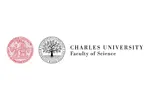We're moving! This site will be relocating to goingto.university in 2026. Please update your bookmarks to the new address.


Czech Republic (the)
Faculty of Science, Charles University| The award | How you will study | Study duration | Course start | Domestic course fees | International course fees |
|---|---|---|---|---|---|
| PhD | Full-time | - | - | - | - |
Emerging diseases represent an important threat to human health. Many birds (similar to bats) are key vectors of zoonotic infections. While presently underdeveloped, evolutionary research in molecular convergence (sharing of molecular adaptations) could aid in showing zoonotic potentials in different hosts. In silico detection of convergence can predict functionally relevant sites diversifying immune genes across species. The objective of this project is to identify convergent adaptations modulating inflammatory responses to different pathogens in birds. The main aim is to provide a proof of concept by testing the functional effects of selected convergent variants on immune responsiveness (in vitro / in vivo). The applicant will resolve 3 key challenges: 1. reveal how frequent molecular convergence is across different groups of inflammatory genes; 2. in selected candidates test for the functional effects of variants on immune responsiveness; 3. identify links between specific variants and compositions of microbial communities inhabiting the hosts. By exploring their links to avian microbiota, the work will allow prediction of host-symbiont associations. The project will take the advantage of a cutting-edge multidisciplinary approach linking biodiversity-based evolutionary analysis with structural modelling, searching for predictive tools for understanding host variation in disease susceptibility.
Five relevant publications of the research group:
Henschen A.E., Vinkler M., Langager M.M., Rowley A.A., Dalloul R.A., Hawley D.M. & Adelman J.S. (2023): Rapid adaptation to a novel pathogen through disease tolerance in a wild songbird. PLoS Pathogens 19(6): e1011408; DOI: 10.1371/journal.ppat.1011408 (IF2022 = 6.7)
Krchl
Contact Faculty of Science, Charles University to find course entry requirements.
Below are some suggested courses at other providers that you may also be interested in:
Full-time MBA (with or without International Exchange) MBA
The University of Edinburgh Business School
Find out moreIf you do not meet the entry requirements for this course then consider one of these postgraduate preparation courses from another institution:
Graduate Diploma of Engineering (Electrical Systems)
Engineering Institute of Technology
Find out moreThere are 136 other courses listed from Faculty of Science, Charles University. A selection of these are displayed below:
A postdoctoral position to study thermal effects in landslides Postdoc
Faculty of Science, Charles University
Find out moreActivation of STING signaling in tumors associated with human papillomaviruses PhD
Faculty of Science, Charles University
Find out moreAdvanced Electron Microscopy Techniques for the Characterization of Tunable Zeolitic Architectures PhD
Faculty of Science, Charles University
Find out moreAmphiphilic Peptidomimetics Containing Metallacarboranes as a Design Strategy for Future Antibiotics PhD
Faculty of Science, Charles University
Find out moreJoin the StudyLink email list and never miss a chance to turn your study abroad dreams into reality!

See other universities in Prague
Find out more about studying in Czech Republic (the)